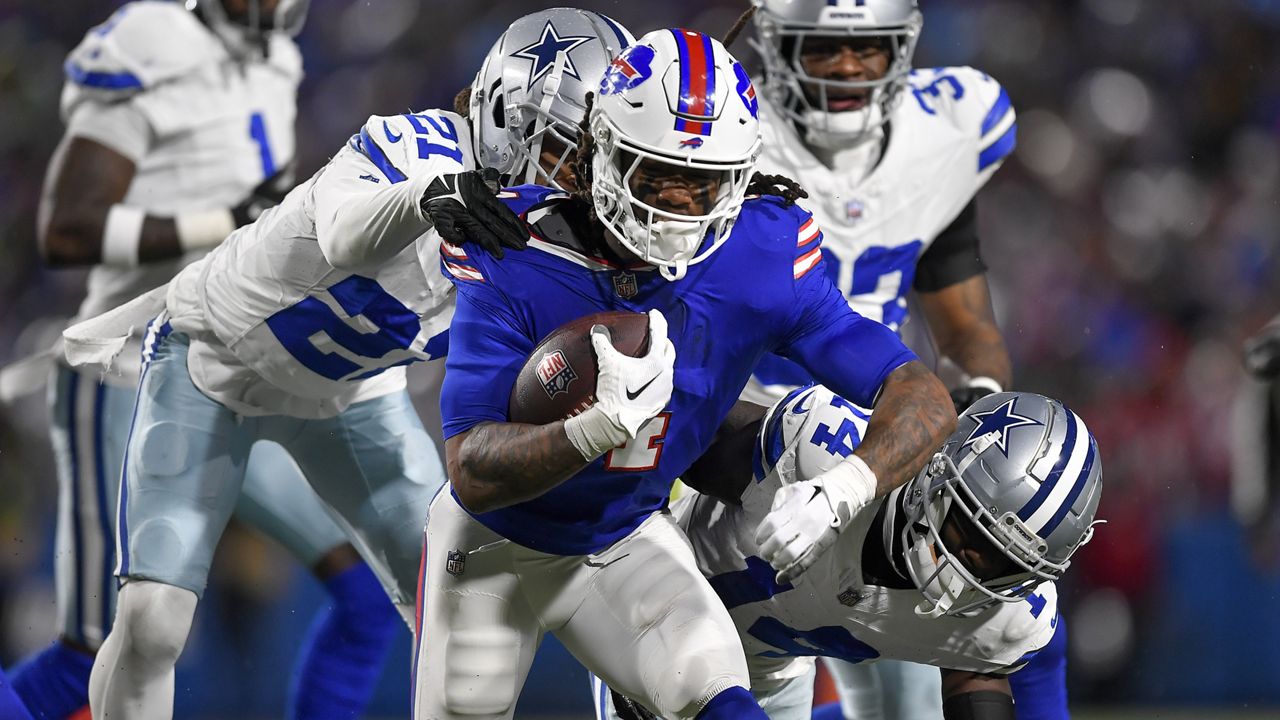New York’s race horsing community is talking about the death of a harness racing horse who was euthanized over the weekend.
The horse, named Heavy Handed Hanna, broke her leg during a competition at a Buffalo raceway.
Officials say she took a bad step prior to the last turn.
It is getting the attention of animal welfare advocates seeking more safety guidelines for horse racing of all kinds.
Many retired racehorses are rehomed. Whispering Pines Stables in Penfield is one stable where some horses go.
After putting in their time on the tracks, former racehorses now live at Whispering Pines where they’re given a chance at a second career. That includes thoroughbreds Elvis and Meatball.
"I’m a big supporter of the thoroughbreds," said stable owner Chris LaBarge. She keeps more than 30 horses at Whispering Pines. Many are thoroughbreds who used to race.
“We do summer camp,” LaBarge said. “We do shows. We travel.”
Now the former racers are jumping, spending time in riding lessons, at shows, or grazing in the pasture – a far different life than the rigid race track days. The folks at the stable help to make the transition.
“How to be like a kid's horse instead of just being in the stall 23 hours a day or because they don't really pasture them usually,” LaBarge said. “So some of them have to learn how to be friends and go out and pasture again since they haven't done it since they were babies. And so that's sort of the process.”
Meatball arrived at the stable last year and is still learning the ropes, while Elvis arrived at the age of four and is now 15.
The horses generally come with some problems after running the tracks.
Equine News reports on an Australian study citing the common reasons trainers retire racehorses – musculoskeletal injuries, respiratory or cardiac conditions, or behavioral problems.
Due to concern over the safety of racehorses, Animal Wellness Action launched a new watchdog site to help hold the new Horseracing Integrity Safety Authority accountable. This comes as animal rights observers keep watch over the treatment of the animals before, during, and after the races.
“So as far as treatment, typically most racetrack trainers treat them like gold,” LaBarge said. “I mean, if you think about it, that's their livelihood. They wouldn't want the horses treated badly. It wouldn't benefit them to have the horses being sick or not taken care of. They're not going to win races that way.”
She believes the industry is working to make positive changes in how it deals with racing horses once they leave the track.
“I think that they're trying,” LaBarge said. “Yes, I think that the organizations are trying to make it so that there's less worry about the slaughter and more worry about finding them homes and the rescues and things.”
Rescue groups continue to work to make sure animals like Elvis and Meatball are not put out to pasture.








